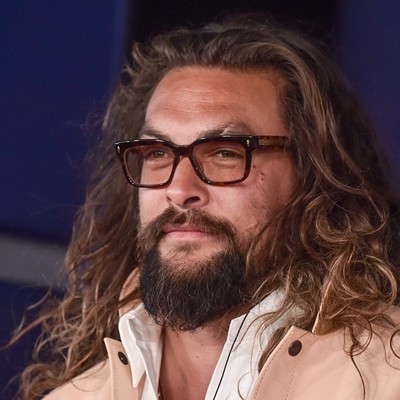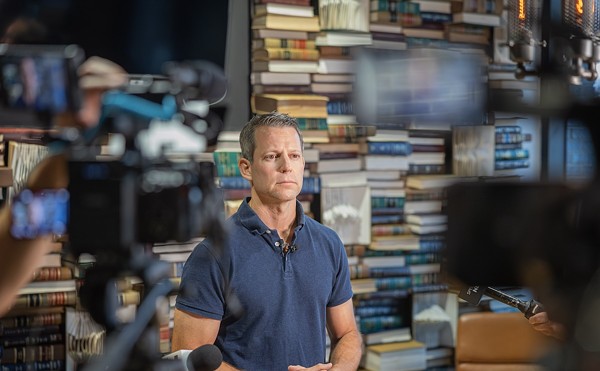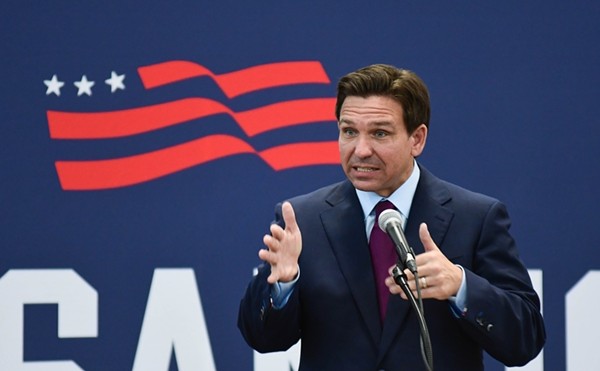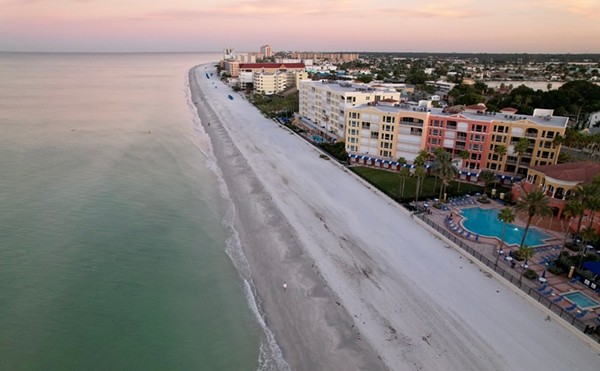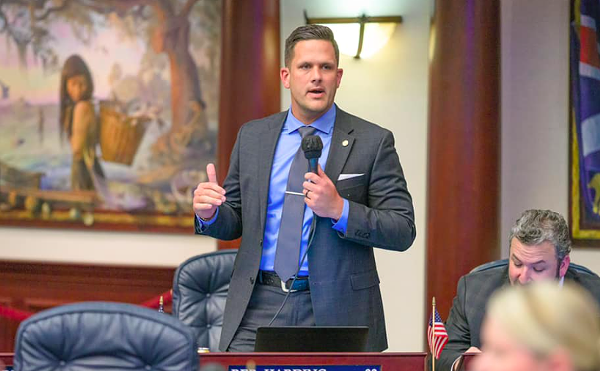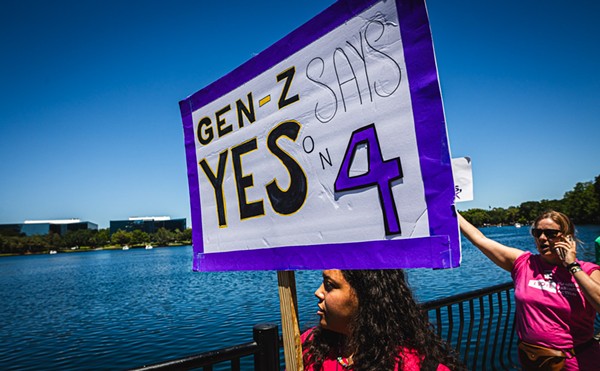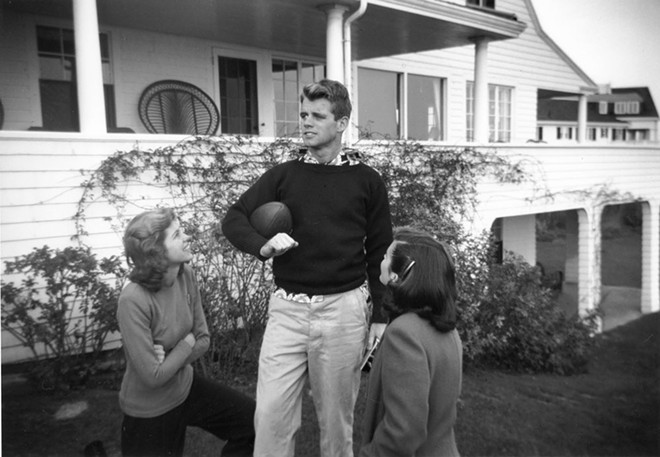
We can never let modern events undermine what Sen. Kennedy’s legacy means to us today.
Though much can be written on Sen. Kennedy’s evolving life, for me it comes down to 1968—when our country was nearing a cultural civil war. Far removed from the naively optimistic 1950s, we had grave threats to civic foundations. There was the Vietnam War, which decimated trust in government, returned heroic troops home to cruelty from fellow citizens and would result in over 58,000 Americans dead. A nation that finally confronted Jim Crow was overwhelmed by urban riots and white backlash that undermined centrist support for progress. Many young people questioned the foundation of their civic faith: They saw Vietnam casualties, riots, tortured Black bodies in the South and ghettos with rats in the North and asked why such a system was worth preserving. Family, faith, patriotism and core civic institutions were threatened. Major political figures—ranging from Medgar Evers to Pres. John F. Kennedy to Malcolm X to Rev. Martin Luther King—were assassinated.
We were coming apart.
In the middle of this crossroads stood a bridge between much of the warring factions: Senator Kennedy.
Poverty and economic justice
Sen. Kennedy understood the moral challenge of Michael Harrington’s “Other America.”
In 1967, he went to Mississippi (which gave arch-conservative Barry Goldwater 87% of its vote for President in 1964) and toured the Mississippi Delta to highlight ingrained poverty. He wanted to improve Lyndon Johnson’s War on Poverty based on work and creating social stakeholders. He traveled to California to confront local officials on anti-labor tactics against migrant workers. He heard what the Book of James calls the “cries of the harvesters.” He struck a blow for a public witness for Catholicism by joining Cesar Chavez in breaking his hunger strike for better working conditions through Holy Communion.
Sen. Kennedy merged the religious imagination of the Vatican II era with modern challenges to create sacramental moments that showed God’s grace in politics.
Racism and backlash
With the end of Reconstruction after 1876 came 90 years of Jim Crow—typified by socially encouraged lynchings (including spectacle lynchings), torture and murder against African-Americans and their allies. The 1960s saw racial terror confronted by a Moses—Rev. Martin Luther King—and his many Aarons and Miriams who helped part a Red Sea. We saw reforms that legislators like Thaddeus Stevens, Charles Sumner and Robert Smalls tried to achieve 100 years before.
Senator Kennedy affirmed the post-war liberal mindset that a nation returning home from the horrors of WWII should confront long-ignored crises—like racism and poverty—with a more humane domestic existence. By 1968, he evolved into an unabashed liberal on civil rights and justice. He stood firm against New Right appeals to backlash and grievance. He believed that civil rights laws which promote access needed to be accompanied by economic equity.
A unifying voice
Sen. Kennedy felt just as comfortable at a Knights of Columbus Fish Fry as he was talking to progressive college students. He saw the good in people, including those who by 1968 were troubled by counterculture trends.
In a time when civic guardrails were threatened by right and left, this “Kennedy liberal” never let America down. He rejected the political excesses of his time. He stood against criminal lawlessness as contrary to the kind of civil society that benefits everyone, including the marginalized. He embraced traditionalism but also acknowledged the pressing political realities of race and injustice. He wanted an end to the Vietnam war, but was an unabashed patriot from a Gold Star family who loved his country. Patriotism to Sen. Kennedy was about addition and not subtraction: Just as his fellow Irish-Americans eventually saw acceptance, so, too, would he pay it forward for the outcasts of 1968.
He saw America as a special place—a place that justified all of the proud flags at fire stations, homes, union halls and churches. But it was a special place in need of renewal.
Sen. Kennedy saw the ascension of figures like Governor George Wallace as acutely dangerous. He saw the danger of politicians who exploited progress on race and scapegoated the poor through “code” demagoguery on welfare fraud, equal opportunity and the politics of resentment.
He built a coalition not on grievance, but on our better nature. It was a wide coalition of African-Americans, Latinos, college students, skilled trade union members who wanted a fair deal, returning veterans, ethnic Catholics and others who were told that “we can do better.” Better on peace. Better on racism. Better on poverty. Better on rejecting grievance. Better on being our brother and sister’s keeper as Americans with big hearts.
On June 6, 1968, Robert F. Kennedy was murdered. That November, Hubert Humphrey—a good man tainted by Vietnam—lost to Richard Nixon, with Nixon and third party candidate George Wallace combining to receive almost 58% of the national vote. We would see “secret plans” to end war which never materialized and an America subject to distrust, division and a never ending political “Southern Strategy.”.
Fast forward to this election season, with Robert F Kennedy Jr. endorsing former President Trump for President.
This endorsement is about more than the apple falling far from the tree of political values. Trump is the embodiment of all that Senator Kennedy evolved to oppose. Trump typifies the dangerous 20th-century figures we once kept out of national power thanks to civic guardrails—Senator Huey Long, Father Charles Coughlin, Senator Joseph McCarthy and Gov. George Wallace. Trump honors January 6th defendants as “hostages” with a reverence a man like Senator Kennedy would have reserved for veterans from Bloody Sunday at Selma. He responds to the tragedy at Charlottesville by mourning the loss of Confederate memorials. Trump champions grievance—fear of the refugee; fear of affordable housing in the suburbs; fear that a white majority is now the victim of discrimination; and a politics that never unites but tears us apart. He peddles ugly lies that harden hearts—from American Muslims celebrating September 11th to stolen elections to President Obama’s birth certificate. Most of all, he recklessly tears at the civic foundations that Sen. Kennedy fought to preserve.
Sen. Kennedy represented a hope of building bridges for justice in a time of political trauma. He did this while keeping the pride of the Irish Catholic welder in Brockton, Massachusetts who still proudly displayed a photograph of President Kennedy on his wall, and the battered faith of the civil rights activist risking their life in Jackson, Mississippi. He was about addition, not subtraction—and showed us how to make wrongs right in a time of savage division.
Subscribe to Creative Loafing newsletters.
Follow us: Google News | NewsBreak | Reddit | Instagram | Facebook | Twitter




